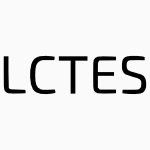288 papers:
 CASE-2015-JeongMS #composition #design #functional #requirements
CASE-2015-JeongMS #composition #design #functional #requirements- Product modularity to jointly address functional and ecological requirements in the early design stage (MGJ, JRM, HWS), pp. 33–38.
 GPCE-2015-FontAHC #metamodelling #modelling #product line
GPCE-2015-FontAHC #metamodelling #modelling #product line- Addressing metamodel revisions in model-based software product lines (JF, LA, ØH, CC), pp. 161–170.
 HPDC-2015-AkiyamaT #concurrent #scalability #thread
HPDC-2015-AkiyamaT #concurrent #scalability #thread- Uni-Address Threads: Scalable Thread Management for RDMA-Based Work Stealing (SA, KT), pp. 15–26.
 HT-2014-KoidlCW #independence #personalisation
HT-2014-KoidlCW #independence #personalisation- Cross-site personalization: assisting users in addressing information needs that span independently hosted websites (KK, OC, VW), pp. 66–76.
 ICSME-2014-CostaAMKH #empirical #integration
ICSME-2014-CostaAMKH #empirical #integration- An Empirical Study of Delays in the Integration of Addressed Issues (DAdC, SLA, SM, UK, AEH), pp. 281–290.
 CHI-2014-LieberBM #concept #programming #visualisation
CHI-2014-LieberBM #concept #programming #visualisation- Addressing misconceptions about code with always-on programming visualizations (TL, JRB, RCM), pp. 2481–2490.
 CHI-2014-WanMWR #evaluation #monitoring
CHI-2014-WanMWR #evaluation #monitoring- Addressing the subtleties in dementia care: pre-study & evaluation of a GPS monitoring system (LW, CM, VW, DWR), pp. 3987–3996.
 HCI-AIMT-2014-HottaHOK #detection #estimation #fault #multi
HCI-AIMT-2014-HottaHOK #detection #estimation #fault #multi- Detecting Address Estimation Errors from Users’ Reactions in Multi-user Agent Conversation (RH, HHH, SO, KK), pp. 245–253.
 ICPR-2014-LuWL #recognition
ICPR-2014-LuWL #recognition- Cost-Sensitive Transformation for Chinese Address Recognition (SL, XW, YL), pp. 2897–2902.
 KDD-2014-ZhengZLJXLSZLTLDLW #data mining #mining #optimisation #process
KDD-2014-ZhengZLJXLSZLTLDLW #data mining #mining #optimisation #process- Applying data mining techniques to address critical process optimization needs in advanced manufacturing (LZ, CZ, LL, YJ, WX, JL, CS, WZ, HL, LT, TL, BD, ML, PW), pp. 1739–1748.
 SEKE-2014-ZhuangZL #fine-grained #framework #layout #reuse #runtime
SEKE-2014-ZhuangZL #fine-grained #framework #layout #reuse #runtime- Runtime Code Reuse Attacks: A Dynamic Framework Bypassing Fine-Grained Address Space Layout Randomization (YZ, TZ, ZL), pp. 609–614.
 SIGIR-2014-ZhangTZX #algorithm #recommendation
SIGIR-2014-ZhangTZX #algorithm #recommendation- Addressing cold start in recommender systems: a semi-supervised co-training algorithm (MZ, JT, XZ, XX), pp. 73–82.
 ASPLOS-2014-PichaiHB #architecture #cpu #design #memory management
ASPLOS-2014-PichaiHB #architecture #cpu #design #memory management- Architectural support for address translation on GPUs: designing memory management units for CPU/GPUs with unified address spaces (BP, LH, AB), pp. 743–758.
 CC-2014-AulerBHMT #adaptation #compilation #crowdsourcing #javascript #jit #performance
CC-2014-AulerBHMT #adaptation #compilation #crowdsourcing #javascript #jit #performance- Addressing JavaScript JIT Engines Performance Quirks: A Crowdsourced Adaptive Compiler (RA, EB, PdH, MM, NT), pp. 218–237.
 HPCA-2014-PowerHW #gpu
HPCA-2014-PowerHW #gpu- Supporting x86-64 address translation for 100s of GPU lanes (JP, MDH, DAW), pp. 568–578.
 DATE-2013-ChenL #2d #architecture #data access #memory management
DATE-2013-ChenL #2d #architecture #data access #memory management- Dual-addressing memory architecture for two-dimensional memory access patterns (YHC, YYL), pp. 71–76.
 DATE-2013-HoofP #health #smarttech
DATE-2013-HoofP #health #smarttech- Addressing the healthcare cost dilemma by managing health instead of managing illness: an opportunity for wearable wireless sensors (CVH, JP), pp. 1537–1539.
 ICDAR-2013-KhanKS #identification #problem #question #verification
ICDAR-2013-KhanKS #identification #problem #question #verification- Can Signature Biometrics Address Both Identification and Verification Problems? (SHK, ZK, FS), pp. 981–985.
 DUXU-CXC-2013-ClarkeSMBKK #health #interactive
DUXU-CXC-2013-ClarkeSMBKK #health #interactive- Addressing Human Computer Interaction Issues of Electronic Health Record in Clinical Encounters (MAC, LMS, JLM, JLB, RJK, MSK), pp. 381–390.
 DUXU-WM-2013-TrappY #mobile
DUXU-WM-2013-TrappY #mobile- Addressing Animated Transitions already in Mobile App Storyboards (MT, RY), pp. 723–732.
 HCI-AMTE-2013-GalindoMPWF #aspect-oriented #education #human-computer #interactive #student
HCI-AMTE-2013-GalindoMPWF #aspect-oriented #education #human-computer #interactive #student- Tuning an HCI Curriculum for Master Students to Address Interactive Critical Systems Aspects (MG, CM, PAP, MW, PF), pp. 51–60.
 ICEIS-v2-2013-PradoB #evolution #using
ICEIS-v2-2013-PradoB #evolution #using- Perspectives on using Actor-Network Theory and Organizational Semiotics to Address Organizational Evolution (ABP, MCCB), pp. 173–181.
 ICEIS-v3-2013-GoncalvesSNU #flexibility #framework #mobile #named #user interface
ICEIS-v3-2013-GoncalvesSNU #flexibility #framework #mobile #named #user interface- Flexinterface: A Framework to Provide Flexible Mobile Phone User Interfaces — Addressing the Elderly Diversity (VPG, SS, VPdAN, JU), pp. 143–150.
 KEOD-2013-KeetD #ontology
KEOD-2013-KeetD #ontology- Addressing Issues in Foundational Ontology Mediation (CMK, ZCD), pp. 5–16.
 SIGIR-2013-LinSKC #modelling #recommendation #twitter
SIGIR-2013-LinSKC #modelling #recommendation #twitter- Addressing cold-start in app recommendation: latent user models constructed from twitter followers (JL, KS, MYK, TSC), pp. 283–292.
 SIGIR-2013-RaiberCK #optimisation
SIGIR-2013-RaiberCK #optimisation- Shame to be sham: addressing content-based grey hat search engine optimization (FR, KCT, OK), pp. 1013–1016.
 PPoPP-2013-ParkSI #concurrent #detection #scalability #source code
PPoPP-2013-ParkSI #concurrent #detection #scalability #source code- Scalable data race detection for partitioned global address space programs (CSP, KS, CI), pp. 305–306.
 CBSE-2012-MartinezV #approach #component #realtime
CBSE-2012-MartinezV #approach #component #realtime- An MDE approach to address synchronization needs in component-based real-time systems (PLM, TV), pp. 125–134.
 ICFP-2012-StefanRBLMM #concurrent #data flow #termination
ICFP-2012-StefanRBLMM #concurrent #data flow #termination- Addressing covert termination and timing channels in concurrent information flow systems (DS, AR, PB, AL, JCM, DM), pp. 201–214.
 CSCW-2012-BenjaminBBGF #how #interactive
CSCW-2012-BenjaminBBGF #how #interactive- Impression management work: how seniors with chronic pain address disruptions in their interactions (AB, JPB, RB, DG, AF), pp. 799–808.
 CSCW-2012-PaoMCR #approach #collaboration #design
CSCW-2012-PaoMCR #approach #collaboration #design- A need-driven design approach: addressing latent needs in collaboration rooted in early childhood (SYP, SM, KC, AR), pp. 829–832.
 KDIR-2012-MountassirBB #analysis #problem #semistructured data #sentiment #set
KDIR-2012-MountassirBB #analysis #problem #semistructured data #sentiment #set- Addressing the Problem of Unbalanced Data Sets in Sentiment Analysis (AM, HB, IB), pp. 306–311.
 KMIS-2012-Vaiyavuth #approach #challenge #concept #energy #framework #how #modelling
KMIS-2012-Vaiyavuth #approach #challenge #concept #energy #framework #how #modelling- How Open Innovation Models Might Help the Thai Energy Sector to Address the Climate Change Challenge? — A Conceptual Framework on an Approach to Measure the Impact of Adoption of Open Innovation (RV), pp. 229–234.
 SLE-2012-Storey #challenge #design #ontology #social #using
SLE-2012-Storey #challenge #design #ontology #social #using- Addressing Cognitive and Social Challenges in Designing and Using Ontologies in the Biomedical Domain (MADS), pp. 1–3.
 ASPLOS-2012-ClementsKZ #scalability #using
ASPLOS-2012-ClementsKZ #scalability #using- Scalable address spaces using RCU balanced trees (ATC, MFK, NZ), pp. 199–210.
 ISMM-2012-LyberisPNSGS #memory management #message passing
ISMM-2012-LyberisPNSGS #memory management #message passing- The myrmics memory allocator: hierarchical, message-passing allocation for global address spaces (SL, PP, DSN, MS, TG, BRdS), pp. 15–24.
 ICST-2012-SyrianiG #challenge #model transformation #quality
ICST-2012-SyrianiG #challenge #model transformation #quality- Challenges for Addressing Quality Factors in Model Transformation (ES, JG), pp. 929–937.
 DAC-2011-HuangSH #power management
DAC-2011-HuangSH #power management- Progressive network-flow based power-aware broadcast addressing for pin-constrained digital microfluidic biochips (TWH, HYS, TYH), pp. 741–746.
 DATE-2011-KapoorJ #design #embedded #power management #tutorial #verification
DATE-2011-KapoorJ #design #embedded #power management #tutorial #verification- Embedded tutorial: Addressing critical power management verification issues in low power designs (BK, KMJ), p. 124.
 DUXU-v2-2011-Zeller #design #what
DUXU-v2-2011-Zeller #design #what- What You See Is What You Don’t Get: Addressing Implications of Information Technology through Design Fiction (LZ), pp. 329–336.
 EDOC-2011-TongBKPL #architecture #challenge #embedded #enterprise #industrial #mobile #process
EDOC-2011-TongBKPL #architecture #challenge #embedded #enterprise #industrial #mobile #process- Enterprise Architecture for Addressing Business Transformation Challenges: The Case of Embedded Mobile Provisioning Process in the Telecommunications Industry (MT, HB, MK, JP, GL), pp. 35–43.
 KDD-2011-MetwallyP
KDD-2011-MetwallyP- Estimating the number of users behind ip addresses for combating abusive traffic (AM, MP), pp. 249–257.
 KDD-2011-ZhengSTLLC #challenge #data mining #information management #mining #mobile
KDD-2011-ZhengSTLLC #challenge #data mining #information management #mining #mobile- Applying data mining techniques to address disaster information management challenges on mobile devices (LZ, CS, LT, TL, SL, SCC), pp. 283–291.
 RecSys-2011-AnandG #approach #problem
RecSys-2011-AnandG #approach #problem- A market-based approach to address the new item problem (SSA, NG), pp. 205–212.
 HPCA-2011-NittaFA #network
HPCA-2011-NittaFA #network- Addressing system-level trimming issues in on-chip nanophotonic networks (CN, MKF, VA), pp. 122–131.
 ASE-2010-Bosch #composition #re-engineering #towards
ASE-2010-Bosch #composition #re-engineering #towards- Keynote address: toward compositional software engineering (JB), pp. 1–2.
 ASE-2010-Green #implementation #specification
ASE-2010-Green #implementation #specification- Keynote address: the actual implementation will be derived from the formal specification — KBSA, 1983 (CG), pp. 183–184.
 ASE-2010-Lamsweerde #modelling
ASE-2010-Lamsweerde #modelling- Keynote address: model engineering for model-driven engineering (AvL), pp. 365–366.
 DATE-2010-DeHonQC #challenge #energy #optimisation #reliability
DATE-2010-DeHonQC #challenge #energy #optimisation #reliability- Vision for cross-layer optimization to address the dual challenges of energy and reliability (AD, HMQ, NPC), pp. 1017–1022.
 DATE-2010-IzumiISO #multi
DATE-2010-IzumiISO #multi- Improved countermeasure against Address-bit DPA for ECC scalar multiplication (MI, JI, KS, KO), pp. 981–984.
 SIGMOD-2010-ShindeGGD #locality #similarity #using
SIGMOD-2010-ShindeGGD #locality #similarity #using- Similarity search and locality sensitive hashing using ternary content addressable memories (RS, AG, PG, DD), pp. 375–386.
 CHI-2010-MoffattM #fault #named
CHI-2010-MoffattM #fault #named- Steadied-bubbles: combining techniques to address pen-based pointing errors for younger and older adults (KM, JM), pp. 1125–1134.
 ICPR-2010-KothariFSPM #standard
ICPR-2010-KothariFSPM #standard- Transfer of Supervision for Improved Address Standardization (GK, TAF, LVS, KHP, MKM), pp. 2178–2181.
 KDD-2010-ZhengSTLLCH #data mining #mining #network #using
KDD-2010-ZhengSTLLCH #data mining #mining #network #using- Using data mining techniques to address critical information exchange needs in disaster affected public-private networks (LZ, CS, LT, TL, SL, SCC, VH), pp. 125–134.
 SAC-2010-PirkolaT #approach #crawling #problem #using
SAC-2010-PirkolaT #approach #crawling #problem #using- Addressing the limited scope problem of focused crawling using a result merging approach (AP, TT), pp. 1735–1740.
 FSE-2010-SumnerZ #memory management
FSE-2010-SumnerZ #memory management- Memory indexing: canonicalizing addresses across executions (WNS, XZ), pp. 217–226.
 ASPLOS-2010-RomanescuLS #consistency #memory management #specification #verification
ASPLOS-2010-RomanescuLS #consistency #memory management #specification #verification- Specifying and dynamically verifying address translation-aware memory consistency (BFR, ARL, DJS), pp. 323–334.
 ASPLOS-2010-ZhuravlevBF #manycore #scheduling
ASPLOS-2010-ZhuravlevBF #manycore #scheduling- Addressing shared resource contention in multicore processors via scheduling (SZ, SB, AF), pp. 129–142.
 HPDC-2010-HaraT #framework
HPDC-2010-HaraT #framework- A global address space framework for irregular applications (KH, KT), pp. 296–299.
 DAC-2009-DasBBFA #design
DAC-2009-DasBBFA #design- Addressing design margins through error-tolerant circuits (SD, DB, DMB, KF, RA), pp. 11–12.
 DAC-2009-PellauerACE #composition #problem
DAC-2009-PellauerACE #composition #problem- Soft connections: addressing the hardware-design modularity problem (MP, MA, DC, JSE), pp. 276–281.
 DATE-2009-KhanK #adaptation #architecture #self
DATE-2009-KhanK #adaptation #architecture #self- A self-adaptive system architecture to address transistor aging (OK, SK), pp. 81–86.
 ICDAR-2009-HamamuraAI #probability #recognition #word
ICDAR-2009-HamamuraAI #probability #recognition #word- An A Posteriori Probability Calculation Method for Analytic Word Recognition Applicable to Address Recognition (TH, TA, BI), pp. 391–395.
 ICDAR-2009-HamamuraAI09a #pattern matching #pattern recognition #recognition
ICDAR-2009-HamamuraAI09a #pattern matching #pattern recognition #recognition- Bayesian Best-First Search for Pattern Recognition — Application to Address Recognition (TH, TA, BI), pp. 461–465.
 HCI-AUII-2009-BlanchardML #approach #human-computer #ontology
HCI-AUII-2009-BlanchardML #approach #human-computer #ontology- Addressing the Interplay of Culture and Affect in HCI: An Ontological Approach (EGB, RM, SPL), pp. 575–584.
 KDD-2009-GuoZGZS #semantics #standard
KDD-2009-GuoZGZS #semantics #standard- Address standardization with latent semantic association (HG, HZ, ZG, XZ, ZS), pp. 1155–1164.
 SIGIR-2009-McNameeNM
SIGIR-2009-McNameeNM- Addressing morphological variation in alphabetic languages (PM, CKN, JM), pp. 75–82.
 ICSE-2009-GermanH #component #development #integration
ICSE-2009-GermanH #component #development #integration- License integration patterns: Addressing license mismatches in component-based development (DMG, AEH), pp. 188–198.
 ASPLOS-2009-GuptaKU #named
ASPLOS-2009-GuptaKU #named- DFTL: a flash translation layer employing demand-based selective caching of page-level address mappings (AG, YK, BU), pp. 229–240.
 LCTES-2009-MooreBCDH #architecture #challenge
LCTES-2009-MooreBCDH #architecture #challenge- Addressing the challenges of DBT for the ARM architecture (RWM, JB, BRC, JWD, JH), pp. 147–156.
 SOSP-2009-ConditNFILBC #memory management #persistent
SOSP-2009-ConditNFILBC #memory management #persistent- Better I/O through byte-addressable, persistent memory (JC, EBN, CF, EI, BCL, DB, DC), pp. 133–146.
 DAC-2008-PaulB #configuration management #memory management #performance #resource management #using
DAC-2008-PaulB #configuration management #memory management #performance #resource management #using- Reconfigurable computing using content addressable memory for improved performance and resource usage (SP, SB), pp. 786–791.
 DAC-2008-Trihy #challenge #library
DAC-2008-Trihy #challenge #library- Addressing library creation challenges from recent Liberty extensions (RT), pp. 474–479.
 DAC-2008-XuC #multi
DAC-2008-XuC #multi- Broadcast electrode-addressing for pin-constrained multi-functional digital microfluidic biochips (TX, KC), pp. 173–178.
 DRR-2008-GacebELE #graph #locality
DRR-2008-GacebELE #graph #locality- Address block localization based on graph theory (DG, VE, FL, HE), p. 68150.
 PASTE-2008-ShonleGL #problem
PASTE-2008-ShonleGL #problem- Addressing common crosscutting problems with Arcum (MS, WGG, SL), pp. 64–69.
 ECIR-2008-CarvalhoC #ranking
ECIR-2008-CarvalhoC #ranking- Ranking Users for Intelligent Message Addressing (VRC, WWC), pp. 321–333.
 KDD-2008-Miletzki #pattern matching #pattern recognition #recognition
KDD-2008-Miletzki #pattern matching #pattern recognition #recognition- Genesis of postal address reading, current state and future prospects: thirty years of pattern recognition on duty of postal services (UM), pp. 5–6.
 SEKE-2008-EzenwoyeS #approach #reliability #web #web service
SEKE-2008-EzenwoyeS #approach #reliability #web #web service- A Language-based Approach to Addressing Reliability in Composite Web Services (OE, SMS), pp. 649–654.
 SEKE-2008-MahoneyE #monitoring #using
SEKE-2008-MahoneyE #monitoring #using- Using Scenario Monitoring to Address State Based Crosscutting Concerns (MM, TE), pp. 581–586.
 MoDELS-2008-GoldsbyC #adaptation #automation #behaviour #generative #modelling #nondeterminism
MoDELS-2008-GoldsbyC #adaptation #automation #behaviour #generative #modelling #nondeterminism- Automatically Generating Behavioral Models of Adaptive Systems to Address Uncertainty (HG, BHCC), pp. 568–583.
 MoDELS-2008-GoldsbyC #adaptation #automation #behaviour #generative #modelling #nondeterminism
MoDELS-2008-GoldsbyC #adaptation #automation #behaviour #generative #modelling #nondeterminism- Automatically Generating Behavioral Models of Adaptive Systems to Address Uncertainty (HG, BHCC), pp. 568–583.
 SAC-2008-TsaiHC #design #power management #queue #scalability
SAC-2008-TsaiHC #design #power management #queue #scalability- Power-efficient and scalable load/store queue design via address compression (YYT, CJH, CHC), pp. 1523–1527.
 SAC-2008-VictorPB #using
SAC-2008-VictorPB #using- Context addressing using context-aware flooding (KV, JP, YB), pp. 1960–1961.
 ASPLOS-2008-LvinNBZ #named #reliability #security
ASPLOS-2008-LvinNBZ #named #reliability #security- Archipelago: trading address space for reliability and security (VBL, GN, EDB, BGZ), pp. 115–124.
 CGO-2008-KetterlinC #data access #predict #recognition
CGO-2008-KetterlinC #data access #predict #recognition- Prediction and trace compression of data access addresses through nested loop recognition (AK, PC), pp. 94–103.
 HPCA-2008-GaoMDZ #branch #correlation #locality #novel #predict
HPCA-2008-GaoMDZ #branch #correlation #locality #novel #predict- Address-branch correlation: A novel locality for long-latency hard-to-predict branches (HG, YM, MD, HZ), pp. 74–85.
 HPDC-2008-NathUS #data-driven
HPDC-2008-NathUS #data-driven- Evaluating the usefulness of content addressable storage for high-performance data intensive applications (PN, BU, AS), pp. 35–44.
 DATE-2007-Furuyama #challenge #mobile #question
DATE-2007-Furuyama #challenge #mobile #question- Keynote address: Challenges of digital consumer and mobile SoC’s: more Moore possible? (TF), p. 1.
 DATE-2007-Naumann #design #evolution #question
DATE-2007-Naumann #design #evolution #question- Keynote address: Was Darwin wrong? Has design evolution stopped at the RTL level... or will software and custom processors (or system-level design) extend Moore’s law? (AN), p. 2.
 ICDAR-2007-JiangDR #recognition
ICDAR-2007-JiangDR #recognition- A Suffix Tree Based Handwritten Chinese Address Recognition System (YJ, XD, ZR), pp. 292–296.
 SIGMOD-2007-ChenL #navigation
SIGMOD-2007-ChenL #navigation- Addressing diverse user preferences in SQL-query-result navigation (ZC, TL), pp. 641–652.
 CSEET-2007-BradySVW #approach #case study #communication #development
CSEET-2007-BradySVW #approach #case study #communication #development- Addressing Communication Issues in Software Development: A Case Study Approach (AB, MS, TV, CW), pp. 301–308.
 SCAM-2007-MoorVHAEOST #analysis #source code
SCAM-2007-MoorVHAEOST #analysis #source code- Keynote Address: .QL for Source Code Analysis (OdM, MV, EH, PA, TE, NO, DS, JT), pp. 3–16.
 OCSC-2007-ChenKH #development #modelling #multi #requirements
OCSC-2007-ChenKH #development #modelling #multi #requirements- Modelling and Matching: A Methodology for ePlanning System Development to Address the Requirements of Multiple User Groups (YC, MK, AH), pp. 41–49.
 RecSys-2007-GadanhoL #nondeterminism
RecSys-2007-GadanhoL #nondeterminism- Addressing uncertainty in implicit preferences (SCG, NL), pp. 97–104.
 ECOOP-2007-VenstermansEB #java #pointer #virtual machine
ECOOP-2007-VenstermansEB #java #pointer #virtual machine- Object-Relative Addressing: Compressed Pointers in 64-Bit Java Virtual Machines (KV, LE, KDB), pp. 79–100.
 RE-2007-OttoA #requirements
RE-2007-OttoA #requirements- Addressing Legal Requirements in Requirements Engineering (PNO, AIA), pp. 5–14.
 HPDC-2007-KimKMBS #network #using
HPDC-2007-KimKMBS #network #using- Using content-addressable networks for load balancing in desktop grids (JSK, PJK, MAM, BB, AS), pp. 189–198.
 LCTES-2007-HinesTW #using
LCTES-2007-HinesTW #using- Addressing instruction fetch bottlenecks by using an instruction register file (SRH, GST, DBW), pp. 165–174.
 DAC-2006-BerezaTWKP #named
DAC-2006-BerezaTWKP #named- PELE: pre-emphasis & equalization link estimator to address the effects of signal integrity limitations (WB, YT, SW, TAK, RHP), pp. 1013–1016.
 DRR-2006-KhanAC #automation
DRR-2006-KhanAC #automation- Address block features for image-based automated mail orientation (MSK, HBA, WTC).
 ICEIS-AIDSS-2006-BerkovskyEM #collaboration
ICEIS-AIDSS-2006-BerkovskyEM #collaboration- Collaborative Filtering Based on Content Addressing (SB, YE, LMM), pp. 91–98.
 ICEIS-J-2006-BerkovskyEM06a #collaboration #nearest neighbour #retrieval
ICEIS-J-2006-BerkovskyEM06a #collaboration #nearest neighbour #retrieval- Retrieval of Collaborative Filtering Nearest Neighbors in a Content-Addressable Space (SB, YE, LMM), pp. 159–178.
 ICPR-v1-2006-StorkJ #analysis #image
ICPR-v1-2006-StorkJ #analysis #image- Estimating the location of illuminants in realist master paintings Computer image analysis addresses a debate in art history of the Baroque (DGS, MKJ), pp. 255–258.
 ICPR-v2-2006-FuDLJR #algorithm #novel #recognition #segmentation #string
ICPR-v2-2006-FuDLJR #algorithm #novel #recognition #segmentation #string- A Novel Segmentation and Recognition Algorithm for Chinese Handwritten Address Character Strings (QF, XQD, TL, YJ, ZR), pp. 974–977.
 ICPR-v2-2006-JiangDR #recognition #string
ICPR-v2-2006-JiangDR #recognition #string- Substring Alignment Method for Lexicon Based Handwritten Chinese String Recognition and Its Application to Address Line Recognition (YJ, XD, ZR), pp. 683–686.
 SAC-2006-LeeYKKK #ad hoc #distributed #mobile #network
SAC-2006-LeeYKKK #ad hoc #distributed #mobile #network- Distributed IPv6 addressing technique for mobile ad-hoc networks (DL, JY, HK, KK, KK), pp. 1156–1160.
 SAC-2006-XuC
SAC-2006-XuC- Improving address space randomization with a dynamic offset randomization technique (HX, SJC), pp. 384–391.
 ICSE-2006-DengSG #aspect-oriented #deployment #development #distributed #embedded #modelling #realtime
ICSE-2006-DengSG #aspect-oriented #deployment #development #distributed #embedded #modelling #realtime- Addressing crosscutting deployment and configuration concerns of distributed real-time and embedded systems via aspect-oriented & model-driven software development (GD, DCS, ASG), pp. 811–814.
 CGO-2006-VenstermansEB #java
CGO-2006-VenstermansEB #java- Space-Efficient 64-bit Java Objects through Selective Typed Virtual Addressing (KV, LE, KDB), pp. 76–86.
 OSDI-2006-ErlingssonAVBN #named
OSDI-2006-ErlingssonAVBN #named- XFI: Software Guards for System Address Spaces (ÚE, MA, MV, MB, GCN), pp. 75–88.
 DRR-2005-TaghvaCPN #markov #modelling #using
DRR-2005-TaghvaCPN #markov #modelling #using- Address extraction using hidden Markov models (KT, JSC, RP, TAN), pp. 119–126.
 ICDAR-2005-FuDLJ #algorithm #markov #modelling #recognition #segmentation #string
ICDAR-2005-FuDLJ #algorithm #markov #modelling #recognition #segmentation #string- A Hidden Markov Model Based Segmentation and Recognition Algorithm for Chinese Handwritten Address Character Strings (QF, XQD, CSL, YJ), pp. 590–594.
 ICDAR-2005-HanL #approach #recognition #segmentation
ICDAR-2005-HanL #approach #recognition #segmentation- A two-stage handwritten character segmentation approach in mail address recognition (ZH, CPL), pp. 111–115.
 IWPC-2005-KirkRW #framework #identification #problem #reuse
IWPC-2005-KirkRW #framework #identification #problem #reuse- Identifying and Addressing Problems in Framework Reuse (DK, MR, MW), pp. 77–86.
 FM-2005-Zave #formal method #network
FM-2005-Zave #formal method #network- A Formal Model of Addressing for Interoperating Networks (PZ), pp. 318–333.
 MoDELS-2005-GrayLZNGNG #named #scalability
MoDELS-2005-GrayLZNGNG #named #scalability- Replicators: Transformations to Address Model Scalability (JGG, YL, JZ, SN, ASG, SN, SSG), pp. 295–308.
 MoDELS-2005-Tolvanen #modelling
MoDELS-2005-Tolvanen #modelling- Keynote Address II: Domain-Specific Modeling: No One Size Fits All (JPT), p. 279.
 MoDELS-2005-GrayLZNGNG #named #scalability
MoDELS-2005-GrayLZNGNG #named #scalability- Replicators: Transformations to Address Model Scalability (JGG, YL, JZ, SN, ASG, SN, SSG), pp. 295–308.
 MoDELS-2005-Tolvanen #modelling
MoDELS-2005-Tolvanen #modelling- Keynote Address II: Domain-Specific Modeling: No One Size Fits All (JPT), p. 279.
 ICSE-2005-Fox #dependence #machine learning #statistics
ICSE-2005-Fox #dependence #machine learning #statistics- Addressing software dependability with statistical and machine learning techniques (AF), p. 8.
 CGO-2005-ChenK #code generation #optimisation
CGO-2005-ChenK #code generation #optimisation- Optimizing Address Code Generation for Array-Intensive DSP Applications (GC, MTK), pp. 141–152.
 PPoPP-2005-CoarfaDMCEMYC #c #evaluation #fortran #parallel
PPoPP-2005-CoarfaDMCEMYC #c #evaluation #fortran #parallel- An evaluation of global address space languages: co-array fortran and unified parallel C (CC, YD, JMMC, FC, TAEG, AM, YY, DGCM), pp. 36–47.
 DATE-v1-2004-HettiaratchiC #implementation #novel
DATE-v1-2004-HettiaratchiC #implementation #novel- A Novel Implementation of Tile-Based Address Mapping (SH, PYKC), pp. 306–311.
 DATE-v2-2004-TirumurtiKSC #approach #modelling #power management
DATE-v2-2004-TirumurtiKSC #approach #modelling #power management- A Modeling Approach for Addressing Power Supply Switching Noise Related Failures of Integrated Circuit (CT, SK, SSK, YSC), pp. 1078–1083.
 ITiCSE-2004-JoyceY
ITiCSE-2004-JoyceY- Addressing professional issues at postgraduate level (DJ, AY), p. 257.
 ICEIS-v3-2004-RukanovaSS #communication #how #metamodelling #towards
ICEIS-v3-2004-RukanovaSS #communication #how #metamodelling #towards- Towards a Meta Model for Describing Communication: How to Address Interoperability on a Pragmatic Level (BR, KvS, RAS), pp. 375–382.
 ICPR-v2-2004-JangJN #image
ICPR-v2-2004-JangJN #image- Locating Destination Address Block in Korean Mail Images (SIJ, SHJ, YSN), pp. 387–390.
 ICPR-v2-2004-KagehiroKSF
ICPR-v2-2004-KagehiroKSF- Address-Block Extraction by Bayesian Rule (TK, MK, HS, HF), pp. 582–585.
 SAC-2004-Bracha #programming language #towards
SAC-2004-Bracha #programming language #towards- Keynote address: towards secure systems programming languages (GB), pp. 1–2.
 ASPLOS-2004-ZhuangZP #framework #information management #named
ASPLOS-2004-ZhuangZP #framework #information management #named- HIDE: an infrastructure for efficiently protecting information leakage on the address bus (XZ, TZ, SP), pp. 72–84.
 CAV-2004-BinghamCHQZ #automation #bound #consistency #verification
CAV-2004-BinghamCHQZ #automation #bound #consistency #verification- Automatic Verification of Sequential Consistency for Unbounded Addresses and Data Values (JDB, AC, AJH, SQ, ZZ), pp. 427–439.
 DAC-2003-Schubert03a #challenge #distributed #functional #industrial #scalability #simulation
DAC-2003-Schubert03a #challenge #distributed #functional #industrial #scalability #simulation- Improvements in functional simulation addressing challenges in large, distributed industry projects (KDS), pp. 11–14.
 DATE-2003-LvHLW #encoding
DATE-2003-LvHLW #encoding- Enhancing Signal Integrity through a Low-Overhead Encoding Scheme on Address Buses (TL, JH, HL, WW), pp. 10542–10549.
 DATE-2003-MaciiMP #clustering #memory management #performance
DATE-2003-MaciiMP #clustering #memory management #performance- Improving the Efficiency of Memory Partitioning by Address Clustering (AM, EM, MP), pp. 10018–10023.
 ICDAR-2003-BrakensiekRR #metric
ICDAR-2003-BrakensiekRR #metric- Confidence Measures for an Address Reading System (AB, JR, GR), pp. 294–298.
 ICDAR-2003-GovindarajuT #clustering
ICDAR-2003-GovindarajuT #clustering- Postal address block location by contour clustering (VG, ST), pp. 429–432.
 ICDAR-2003-MenotiBFB #approach #feature model #segmentation
ICDAR-2003-MenotiBFB #approach #feature model #segmentation- Segmentation of Postal Envelopes for Address Block Location: an approach based on feature selection in wavelet space (DM, DLB, JF, AdSBJ), pp. 699–703.
 ITiCSE-2003-Trakhtenbrot #analysis #concept #how
ITiCSE-2003-Trakhtenbrot #analysis #concept #how- Analysis of typical misconceptions in a theoretical CS course, and how to address them in e-learning (MBT), p. 241.
 EDOC-2003-AkehurstDW #design
EDOC-2003-AkehurstDW #design- Addressing Computational Viewpoint Design (DHA, JD, AGW), pp. 147–158.
 ICEIS-v3-2003-GoeppK #evolution #information management #problem #towards
ICEIS-v3-2003-GoeppK #evolution #information management #problem #towards- Towards a Definition of the Key-Problems in Information System Evolution — Formulating Problems to Better Address Information System Projects (VG, FK), pp. 586–589.
 CIKM-2003-BallesterosS #retrieval
CIKM-2003-BallesterosS #retrieval- Addressing the lack of direct translation resources for cross-language retrieval (LB, MS), pp. 147–152.
 SIGIR-2003-Broder #graph #modelling #using #web
SIGIR-2003-Broder #graph #modelling #using #web- Keynote Address — exploring, modeling, and using the web graph (AZB), p. 1.
 SAC-2003-CazierSL #privacy #trust
SAC-2003-CazierSL #privacy #trust- Addressing E-Business Privacy Concerns: The Roles of Trust and Value Compatibility (JC, BS, RSL), pp. 617–622.
 CC-2003-KandemirICR
CC-2003-KandemirICR- Address Register Assignment for Reducing Code Size (MTK, MJI, GC, JR), pp. 273–289.
 CC-2003-Leupers #algorithm #evaluation #optimisation
CC-2003-Leupers #algorithm #evaluation #optimisation- Offset Assignment Showdown: Evaluation of DSP Address Code Optimization Algorithms (RL), pp. 290–302.
 CGO-2003-DehnertGBJKKM #adaptation #challenge #using
CGO-2003-DehnertGBJKKM #adaptation #challenge #using- The Transmeta Code Morphing — Software: Using Speculation, Recovery, and Adaptive Retranslation to Address Real-Life Challenges (JCD, BG, JPB, RJ, TK, AK, JM), pp. 15–24.
 CGO-2003-EcksteinS
CGO-2003-EcksteinS- Addressing Mode Selection (EE, BS), pp. 337–346.
 CGO-2003-LinCHY #using
CGO-2003-LinCHY #using- Speculative Register Promotion Using Advanced Load Address Table (ALAT) (JL, TC, WCH, PCY), pp. 125–134.
 HPDC-2003-Cuenca-AcunaPMN #community #information management #named #peer-to-peer #using
HPDC-2003-Cuenca-AcunaPMN #community #information management #named #peer-to-peer #using- PlanetP: Using Gossiping to Build Content Addressable Peer-to-Peer Information Sharing Communities (FMCA, CP, RPM, TDN), pp. 236–249.
 DAC-2002-ChoiK #code generation #scheduling
DAC-2002-ChoiK #code generation #scheduling- Address assignment combined with scheduling in DSP code generation (YC, TK), pp. 225–230.
 DATE-2002-AghaghiriPF #encoding #multi #power management
DATE-2002-AghaghiriPF #encoding #multi #power management- EZ Encoding: A Class of Irredundant Low Power Codes for Data Address and Multiplexed Address Buses (YA, MP, FF), p. 1102.
 DATE-2002-HettiaratchiCC #generative #memory management #trade-off
DATE-2002-HettiaratchiCC #generative #memory management #trade-off- Performance-Area Trade-Off of Address Generators for Address Decoder-Decoupled Memory (SH, PYKC, TJWC), pp. 902–908.
 DATE-2002-MacchiaruloMP #energy
DATE-2002-MacchiaruloMP #energy- Wire Placement for Crosstalk Energy Minimization in Address Buses (LM, EM, MP), pp. 158–162.
 DATE-2002-PalkovicMC #optimisation #trade-off
DATE-2002-PalkovicMC #optimisation #trade-off- Systematic Power-Performance Trade-Off in MPEG-4 by Means of Selective Function Inlining Steered by Address Optimization Opportunities (MP, MM, FC), pp. 1072–1077.
 ITiCSE-2002-Clear #performance
ITiCSE-2002-Clear #performance- A diagnostic technique for addressing group performance in capstone projects (TC), p. 196.
 CAiSE-2002-CaiY #approach #performance #requirements #using
CAiSE-2002-CaiY #approach #performance #requirements #using- Addressing Performance Requirements Using a Goal and Scenario-Oriented Approach (ZC, ESKY), pp. 706–710.
 ASPLOS-2002-AshokCM #energy #memory management #named #performance
ASPLOS-2002-AshokCM #energy #memory management #named #performance- Cool-Mem: combining statically speculative memory accessing with selective address translation for energy efficiency (RA, SC, CAM), pp. 133–143.
 ASPLOS-2002-Estrin #architecture #challenge #network #research
ASPLOS-2002-Estrin #architecture #challenge #network #research- Keynote address: Sensor network research: emerging challenges for architecture, systems, and languages (DE), pp. 1–4.
 DAC-2001-HenkelL #adaptation #design #named #power management
DAC-2001-HenkelL #adaptation #design #named #power management- A2BC: Adaptive Address Bus Coding for Low Power Deep Sub-Micron Designs (JH, HL), pp. 744–749.
 DAC-2001-SgroiSMKMRS #design
DAC-2001-SgroiSMKMRS #design- Addressing the System-on-a-Chip Interconnect Woes Through Communication-Based Design (MS, MS, AM, KK, SM, JMR, ALSV), pp. 667–672.
 DAC-2001-UdayanarayananC #code generation
DAC-2001-UdayanarayananC #code generation- Address Code Generation for Digital Signal Processors (SU, CC), pp. 353–358.
 DATE-2001-CichonB #data type #network
DATE-2001-CichonB #data type #network- Annotated data types for addressed token passing networks (GC, WB), p. 801.
 ICDAR-2001-BrakensiekRWR #adaptation
ICDAR-2001-BrakensiekRWR #adaptation- Adaptation of an Address Reading System to Local Mail Streams (AB, JR, FW, GR), pp. 872–876.
 ICDAR-2001-DingOKM #recognition
ICDAR-2001-DingOKM #recognition- Application of Slant Correction to Handwritten Japanese Address Recognition (YD, MO, FK, YM), pp. 670–674.
 ICDAR-2001-KimLSN #analysis #encoding #performance
ICDAR-2001-KimLSN #analysis #encoding #performance- Analysis of Postal Address Fields for Efficient Encoding of Korean Mail Pieces (GK, SL, MS, YSN), pp. 675–679.
 ICDAR-2001-LiuKF #recognition #string
ICDAR-2001-LiuKF #recognition #string- Lexicon-Driven Handwritten Character String Recognition for Japanese Address Reading (CLL, MK, HF), pp. 877–881.
 ICDAR-2001-WatanabeS #estimation
ICDAR-2001-WatanabeS #estimation- Estimation of Home-Address Numbers on the Basis of Relationships and Directions among House Blocks (TW, TS), p. 1245–?.
 ICSM-2001-Layzell #evolution #maintenance #re-engineering #research #roadmap
ICSM-2001-Layzell #evolution #maintenance #re-engineering #research #roadmap- Addressing the Software Evolution Crisis Through a Service-Oriented View of Software: A Roadmap for Software Engineering and Maintenance Research (PJL), p. 5.
 SIGAda-2001-Carlisle #ada
SIGAda-2001-Carlisle #ada- Keynote address: confessions of an academic Ada zealot (MCC), pp. 71–72.
 SIGAda-2001-Dewar #ada #development
SIGAda-2001-Dewar #ada #development- Keynote address: future development of the Ada language (RD), pp. 1–2.
 SIGAda-2001-Taft01a
SIGAda-2001-Taft01a- Keynote address: fixing software before it breaks (STT), pp. 97–98.
 EDOC-2001-ArreguiPW #middleware #scalability #using
EDOC-2001-ArreguiPW #middleware #scalability #using- Addressing Scalability Issues Using the CLF Middleware (DA, FP, JW), pp. 93–104.
 LSO-2001-Lehner #how
LSO-2001-Lehner #how- Keynote Address: How do Companies Learn? Selected Applications from the IT Sector (FL), p. 17.
 CC-2001-OttoniRARM #embedded #source code
CC-2001-OttoniRARM #embedded #source code- Optimal Live Range Merge for Address Register Allocation in Embedded Programs (GO, SR, GA, SR, SM), pp. 274–288.
 HPCA-2001-QiuD #memory management #towards
HPCA-2001-QiuD #memory management #towards- Towards Virtually-Addressed Memory Hierarchies (XQ, MD), pp. 51–62.
 DATE-2000-ChangKK #architecture #memory management #video
DATE-2000-ChangKK #architecture #memory management #video- A Memory Architecture with 4-Address Configurations for Video Signal Processing (SC, JSK, LSK), p. 746.
 DATE-2000-GuptaGMC #analysis #program transformation #programmable
DATE-2000-GuptaGMC #analysis #program transformation #programmable- Analysis of High-Level Address Code Transformations for Programmable Processors (SG, RKG, MM, FC), pp. 9–13.
 ICEIS-2000-OquendoPR #enterprise #modelling #process
ICEIS-2000-OquendoPR #enterprise #modelling #process- Addressing Decision Making Issues in Enterprise Process Modelling (FO, KNP, IR), pp. 333–338.
 ICEIS-2000-SaGBS #multi #process
ICEIS-2000-SaGBS #multi #process- Addressing Multiple Software Processes in Business (JS, SG, IB, AS), pp. 339–343.
 CAV-2000-Meadows #analysis #encryption #formal method #protocol
CAV-2000-Meadows #analysis #encryption #formal method #protocol- Invited Address: Applying Formal Methods to Cryptographic Protocol Analysis (CM), p. 2.
 CAV-2000-Pnueli #abstraction #composition #deduction #explosion #symmetry
CAV-2000-Pnueli #abstraction #composition #deduction #explosion #symmetry- Keynote Address: Abstraction, Composition, Symmetry, and a Little Deduction: The Remedies to State Explosion (AP), p. 1.
 ICDAR-1999-AokiANNM #approach #multi #recognition
ICDAR-1999-AokiANNM #approach #multi #recognition- A New Approach for Multilingual Address Recognition (YA, TA, AN, NN, HM), pp. 313–316.
 ICDAR-1999-LeeL #automation #design #empirical #sorting #verification
ICDAR-1999-LeeL #automation #design #empirical #sorting #verification- Empirical Design of a Holistic Verifier for Automatic Sorting of Handwritten Singapore Postal Addresses (CKL, GL), pp. 733–736.
 ICDAR-1999-MahadevanS #parsing #recognition
ICDAR-1999-MahadevanS #parsing #recognition- Parsing and Recognition of City, State, and ZIP Codes in Handwritten Addresses (UM, SNS), pp. 325–328.
 ICDAR-1999-MiletzkiBS #learning
ICDAR-1999-MiletzkiBS #learning- Continuous Learning Systems: Postal Address Readers with Built-In Learning Capability (UM, TB, HS), pp. 329–332.
 ICDAR-1999-NuijtG #probability #recognition #towards
ICDAR-1999-NuijtG #probability #recognition #towards- A Probabilistic Model for Postcode Recognition: A First Step towards Probabilistic Address Interpretation (MRN, EvG), pp. 761–764.
 ICDAR-1999-OgataUMSF #recognition
ICDAR-1999-OgataUMSF #recognition- A Method for Street Number Matching in Japanese Address Recognition (HO, YU, KM, HS, HF), pp. 321–324.
 ICDAR-1999-SrihariYG #analysis #automation
ICDAR-1999-SrihariYG #analysis #automation- Information Theoretic Analysis of Postal Address Fields for Automatic Address Interpretation (SNS, WjY, VG), pp. 309–312.
 ICDAR-1999-WangT #documentation #image #recognition
ICDAR-1999-WangT #documentation #image #recognition- A New Method of Character Line Extraction from Mixed-unformatted Document Image for Japanese Mail Address Recognition (XW, TT), pp. 769–772.
 ICDAR-1999-XueDLPK
ICDAR-1999-XueDLPK- Destination Address Block Location on Handwritten Chinese Envelope (JX, XD, CL, SP, HK), pp. 737–740.
 ICALP-1999-Hartmanis
ICALP-1999-Hartmanis- Observations about the Nature and State of Computer Science (Keynote Address) (JH), p. 105.
 HCI-CCAD-1999-RauS #bibliography #email
HCI-CCAD-1999-RauS #bibliography #email- Likes and dislikes of electronic mail addresses: a users’ survey (PLPR, GS), pp. 58–61.
 HCI-EI-1999-Moore #bibliography #metric #perspective
HCI-EI-1999-Moore #bibliography #metric #perspective- Project Leap: Addressing Measurement Dysfunction in Review (CM), pp. 871–874.
 SIGAda-1999-Boehm #future of #predict #re-engineering
SIGAda-1999-Boehm #future of #predict #re-engineering- Predicting the future of computer systems and software engineering (keynote address) (BWB), p. 227.
 SIGAda-1999-McCormick #ada #education #re-engineering #realtime
SIGAda-1999-McCormick #ada #education #re-engineering #realtime- Ada, model railroading, and real-time software engineering education (keynote address) (JWM), pp. 111–112.
 SIGAda-1999-Selic #design pattern #realtime
SIGAda-1999-Selic #design pattern #realtime- Architectural patterns for complex real-time systems (abstract of keynote address) (BS), p. 1.
 TOOLS-ASIA-1999-HansenT #architecture #domain model #interactive #nondeterminism
TOOLS-ASIA-1999-HansenT #architecture #domain model #interactive #nondeterminism- The “Domain Model Concealer” and “Application Moderator” Patterns: Addressing Architectural Uncertainty in Interactive Systems (KMH, MT), pp. 177–190.
 DATE-1998-BasuLM #source code
DATE-1998-BasuLM #source code- Register-Constrained Address Computation in DSP Programs (AB, RL, PM), pp. 929–930.
 DATE-1998-BeniniMSMS #encoding #optimisation
DATE-1998-BeniniMSMS #encoding #optimisation- Address Bus Encoding Techniques for System-Level Power Optimization (LB, GDM, DS, EM, CS), pp. 861–866.
 ICPR-1998-MaoSM #recognition
ICPR-1998-MaoSM #recognition- A system for cursive handwritten address recognition (JM, PS, KMM), pp. 1285–1287.
 SIGIR-1998-Kirsch #future of #internet
SIGIR-1998-Kirsch #future of #internet- The Future of Internet Search (Keynote Address) (SK), p. 1.
 SAC-1998-Sterling #clustering
SAC-1998-Sterling #clustering- Beowulf PC clusters: breaking the cost barrier to high end application computing (keynote address — abstract) (TLS), p. 1.
 ASPLOS-1998-ChenBDDL #interface #named #network
ASPLOS-1998-ChenBDDL #interface #named #network- UTLB: A Mechanism for Address Translation on Network Interfaces (YC, AB, SND, CD, KL), pp. 193–204.
 HPCA-1998-SchoinasH #interface #network
HPCA-1998-SchoinasH #interface #network- Address Translation Mechanisms In Network Interfaces (IS, MDH), pp. 219–230.
 HPDC-1998-GianniniC #architecture #clustering #communication #performance
HPDC-1998-GianniniC #architecture #clustering #communication #performance- A Software Architecture for Global Address Space Communication on Clusters: Put/Get on Fast Messages (LAG, AAC), pp. 330–337.
 JICSLP-1998-Milner #π-calculus
JICSLP-1998-Milner #π-calculus- The π Calculus and Its Applications (Keynote Address) (RM), pp. 3–4.
 DAC-1997-PandeyRBA #evaluation #using #verification
DAC-1997-PandeyRBA #evaluation #using #verification- Formal Verification of Content Addressable Memories Using Symbolic Trajectory Evaluation (MP, RR, REB, MSA), pp. 167–172.
 DAC-1997-SudarsanamLD #analysis #architecture #evaluation
DAC-1997-SudarsanamLD #analysis #architecture #evaluation- Analysis and Evaluation of Address Arithmetic Capabilities in Custom DSP Architectures (AS, SYL, SD), pp. 287–292.
 EDTC-1997-MirandaKCM #architecture #generative #hardware #optimisation
EDTC-1997-MirandaKCM #architecture #generative #hardware #optimisation- Architectural exploration and optimization for counter based hardware address generation (MM, MK, FC, HDM), pp. 293–298.
 ICDAR-1997-IshideraNY #recognition #using #word
ICDAR-1997-IshideraNY #recognition #using #word- Unconstrained Japanese Address Recognition Using a Combination of Spatial Information and Word Knowledge (EI, DN, KY), p. 1016–?.
 ICDAR-1997-SrihariK #integration
ICDAR-1997-SrihariK #integration- Integration of hand-written address interpretation technology into the United States Postal Service Remote Computer Reader system (SNS, EJK), pp. 892–896.
 ICDAR-1997-WolfN #locality
ICDAR-1997-WolfN #locality- Form--Based Localization of the Destination Address Block on Complex Envelopes (MW, HN), p. 908–?.
 ICDAR-1997-WolfNS #image #performance
ICDAR-1997-WolfNS #image #performance- Fast Address Block Location on Handwritten and Machine Printed Mail--piece Images (MW, HN, WS), pp. 753–757.
 ICFP-1997-Draves #implementation
ICFP-1997-Draves #implementation- Implementing Bit-addressing with Specialization (SD), pp. 239–250.
 HCI-CC-1997-StephanidisSP #development #interface
HCI-CC-1997-StephanidisSP #development #interface- Addressing Cultural Diversity Through Unified Interface Development (CS, AS, AP), pp. 165–168.
 HCI-SEC-1997-Bocker #human-computer #multi
HCI-SEC-1997-Bocker #human-computer #multi- Multimedia HCI Addressed by ETSI (MB), pp. 695–698.
 HCI-SEC-1997-GunjiKK #using
HCI-SEC-1997-GunjiKK #using- Quick Address Search System with Handwriting Using Character Transition Information (KG, SK, KK), pp. 423–426.
 CIKM-1997-Baeza-YatesN #approximate #retrieval
CIKM-1997-Baeza-YatesN #approximate #retrieval- Block Addressing Indices for Approximate Text Retrieval (RABY, GN), pp. 1–8.
 ICML-1997-KubatM #set
ICML-1997-KubatM #set- Addressing the Curse of Imbalanced Training Sets: One-Sided Selection (MK, SM), pp. 179–186.
 TOOLS-ASIA-1997-JinF #adaptation
TOOLS-ASIA-1997-JinF #adaptation- Adaptive Object Addressing (BJ, YF), pp. 385–388.
 HPCA-1997-JacobM
HPCA-1997-JacobM- Software-Managed Address Translation (BLJ, TNM), pp. 156–167.
 HPCA-1997-StrickerG #memory management #parallel #performance
HPCA-1997-StrickerG #memory management #parallel #performance- Global Address Space, Non-Uniform Bandwidth: A Memory System Performance Characterization of Parallel Systems (TS, TRG), pp. 168–179.
 PPoPP-1997-JiangS #parallel
PPoPP-1997-JiangS #parallel- Parallel Shear-Warp Volume Rendering on Shared Address Space Multiprocessors (DJ, JPS), pp. 252–263.
 PPoPP-1997-LimCCE #communication #performance
PPoPP-1997-LimCCE #communication #performance- Performance Implications of Communication Mechanisms in All-Software Global Address Space Systems (BHL, CCC, GC, TvE), pp. 230–239.
 DAC-1996-LiemPJ #architecture #compilation
DAC-1996-LiemPJ #architecture #compilation- Address Calculation for Retargetable Compilation and Exploration of Instruction-Set Architectures (CL, PGP, AAJ), pp. 597–600.
 KBSE-1996-Benner #automation #complexity #coordination #development
KBSE-1996-Benner #automation #complexity #coordination #development- Addressing Complexity, Coordination, and Automation in Software Development with the KBSA/ADM (KB), p. 13.
 CSCW-1996-HudsonS #privacy #trade-off
CSCW-1996-HudsonS #privacy #trade-off- Techniques for Addressing Fundamental Privacy and Disruption Tradeoffs in Awareness Support Systems (SEH, IES), pp. 248–257.
 CIKM-1996-Mulder #collaboration #generative #industrial
CIKM-1996-Mulder #collaboration #generative #industrial- Educating the Next Generation of Information and Knowledge Experts, in Collaboration with Industry (Keynote Address) (MCM), p. 3.
 ICPR-1996-NakajimaTKY #analysis #layout #process #verification
ICPR-1996-NakajimaTKY #analysis #layout #process #verification- Analysis of address layout on Japanese handwritten mail-a hierarchical process of hypothesis verification (NN, TT, TK, KY), pp. 726–731.
 ICPR-1996-WhichelloY #image
ICPR-1996-WhichelloY #image- Locating address blocks and postcodes in mail-piece images (APW, HY), pp. 716–720.
 ASPLOS-1996-KrishnamurthySSWCY #architecture #communication #evaluation #parallel #scalability
ASPLOS-1996-KrishnamurthySSWCY #architecture #communication #evaluation #parallel #scalability- Evaluation of Architectural Support for Global Address-Based Communication in Large-Scale Parallel Machines (AK, KES, CJS, RYW, DEC, KAY), pp. 37–48.
 HPCA-1996-YangSD #parallel #query
HPCA-1996-YangSD #parallel #query- Parallel Intersecting Compressed Bit Vectors in a High Speed Query Server for Processing Postal Addresses (WjY, RS, VD), pp. 232–241.
 ICDAR-v1-1995-BertilleG #approach #automation #probability
ICDAR-v1-1995-BertilleG #approach #automation #probability- A probabilistic approach to automatic handwritten address reading (JMB, MG), pp. 368–371.
 ICDAR-v1-1995-SrihariSRL
ICDAR-v1-1995-SrihariSRL- Name and Address Block Reader system for tax form processing (SNS, YCS, VR, DSL), pp. 5–10.
 ICDAR-v2-1995-El-YacoubiBG #recognition
ICDAR-v2-1995-El-YacoubiBG #recognition- Conjoined location and recognition of street names within a postal address delivery line (MAEY, JMB, MG), pp. 1024–1027.
 ICDAR-v2-1995-LiiS
ICDAR-v2-1995-LiiS- Location of name and address on fax cover pages (JL, SNS), pp. 756–759.
 ICDAR-v2-1995-Randriamasy #benchmark #image #metric
ICDAR-v2-1995-Randriamasy #benchmark #image #metric- A set-based benchmarking method for address bloc location on arbitrarily complex grey level images (SR), pp. 619–622.
 SIGMOD-1995-Ellison
SIGMOD-1995-Ellison- Keynote Address (LE), p. 437.
 SIGMOD-1995-Epstein
SIGMOD-1995-Epstein- Keynote Address (RSE), p. 438.
 CSEE-1995-Browning
CSEE-1995-Browning- Keynote Address: Endangered Species? The Single-Skilled Information Worker (MFB), pp. 265–276.
 CSEE-1995-Waddoups #education
CSEE-1995-Waddoups #education- Keynote Address: Education — The World’s Best Investment (ROW), p. 119.
 PEPM-1995-Jones #years after
PEPM-1995-Jones #years after- Special Address: MIX ten years after (NDJ), pp. 24–38.
 CHI-1995-NigayC #challenge #framework #multimodal
CHI-1995-NigayC #challenge #framework #multimodal- A Generic Platform for Addressing the Multimodal Challenge (LN, JC), pp. 98–105.
 SOSP-1995-TalluriHK
SOSP-1995-TalluriHK- A New Page Table for 64-bit Address Spaces (MT, MDH, YYAK), pp. 184–200.
 EDAC-1994-AGZS #functional #testing
EDAC-1994-AGZS #functional #testing- Functional Tests for Ring-Address SRAM-type FIFOs (AJvdG, YZ, IS), p. 666.
 EDAC-1994-GrantML #generative #hardware #optimisation
EDAC-1994-GrantML #generative #hardware #optimisation- Optimization of Address Generator Hardware (DMG, JLvM, PERL), pp. 325–329.
 PLDI-1994-SrivastavaW #architecture #optimisation
PLDI-1994-SrivastavaW #architecture #optimisation- Link-Time Optimization of Address Calculation on a 64-bit Architecture (AS, DWW), pp. 49–60.
 AdaEurope-1994-Anderson #ada
AdaEurope-1994-Anderson #ada- Opening Address: Ada 9X (CA), pp. 1–10.
 ASPLOS-1994-CarterKD #hardware #performance
ASPLOS-1994-CarterKD #hardware #performance- Hardware Support for Fast Capability-based Addressing (NPC, SWK, WJD), pp. 319–327.
 DAC-1993-ChiproutN #evaluation #performance
DAC-1993-ChiproutN #evaluation #performance- Addressing High-Speed Interconnect Issues in Asymptotic Waveform Evaluation (EC, MSN), pp. 732–736.
 ICDAR-1993-LeeKM #algorithm #fault #performance #recognition
ICDAR-1993-LeeKM #algorithm #fault #performance #recognition- Efficient postprocessing algorithms for error correction in handwritten Hangul address and human name recognition (SWL, ESK, BWM), pp. 232–235.
 ICDAR-1993-LiiPS #recognition #syntax #using
ICDAR-1993-LiiPS #recognition #syntax #using- Address block location using character recognition and address syntax (JL, PWP, SNS), pp. 330–334.
 ICDAR-1993-SrihariGS
ICDAR-1993-SrihariGS- Interpretation of handwritten addresses in US mailstream (SNS, VG, AS), pp. 291–294.
 HCI-ACS-1993-LehaneWL #design #modelling #parallel
HCI-ACS-1993-LehaneWL #design #modelling #parallel- Parallel Modeling: Addressing the Issues of Creative Designing in CAD Environments (ARL, DKW, EBL), pp. 249–254.
 TOOLS-USA-1993-CaseauSK #object-oriented #optimisation #problem #programming
TOOLS-USA-1993-CaseauSK #object-oriented #optimisation #problem #programming- Extending Object-Oriented Programming to Address Hard Optimization Problems (YC, GS, PK), pp. 351–361.
 TOOLS-USA-1993-MannsC #migration
TOOLS-USA-1993-MannsC #migration- Addressing the Task of Procedural to O-O Migration Through Corporate & Academic Cooperation (MLM, JNC), pp. 595–596.
 PPoPP-1993-ChatterjeeGLST #communication #generative #set #source code
PPoPP-1993-ChatterjeeGLST #communication #generative #set #source code- Generating Local Address and Communication Sets for Data-Parallel Programs (SC, JRG, FJEL, RS, SHT), pp. 149–158.
 SOSP-WIP-1991-ChaseBLL92 #architecture #named
SOSP-WIP-1991-ChaseBLL92 #architecture #named- Opal: A Single Address Space System for 64-Bit Architectures (Abstract) (JSC, MBH, HML, EDL), p. 9.
 ASPLOS-1992-ChiuehK #physics
ASPLOS-1992-ChiuehK #physics- Eliminating the Address Translation Bottleneck for Physical Address Cache (TcC, RHK), pp. 137–148.
 ASPLOS-1992-KoldingerCE #architecture #operating system
ASPLOS-1992-KoldingerCE #architecture #operating system- Architectural Support for Single Address Space Operating Systems (EJK, JSC, SJE), pp. 175–186.
 DAC-1991-ChandraFGP #novel
DAC-1991-ChandraFGP #novel- ATPG Based on a Novel Grid-Addressable Latch Element (SJC, TF, TG, KP), pp. 282–286.
 SEI-1991-Shafer #physics
SEI-1991-Shafer #physics- Keynote Address: Soft Ware for Hard Physics (SS), pp. 1–2.
 SIGIR-1991-AnickFH #requirements
SIGIR-1991-AnickFH #requirements- Addressing the Requirements of a Dynamic Corporate Textual Information Base (PGA, RAF, DRH), pp. 163–172.
 DAC-1990-SatoKO #hardware #implementation #memory management
DAC-1990-SatoKO #hardware #implementation #memory management- A Hardware Implementation of Gridless Routing Based on Content Addressable Memory (MS, KK, TO), pp. 646–649.
 CHI-1990-Dertouzos #user interface
CHI-1990-Dertouzos #user interface- Redefining tomorrow’s user interface (plenary address) (MLD), p. 1.
 CHI-1990-Winograd #education #human-computer #interactive #what
CHI-1990-Winograd #education #human-computer #interactive #what- What can we teach about human-computer interaction? (plenary address) (TW), pp. 443–448.
 OOPSLA-1989-ConnorDMB #inheritance #multi
OOPSLA-1989-ConnorDMB #inheritance #multi- An Object Addressing Mechanism for Statically Types Languages with Multiple Inheritance (RCHC, AD, RM, ALB), pp. 279–285.
 JICSCP-1988-StormonBOR88 #agile #architecture #execution #memory management #prolog
JICSCP-1988-StormonBOR88 #agile #architecture #execution #memory management #prolog- An Architecture Based on Content-Addressable Memory for the Rapid Execution of Prolog (CDS, MRB, JVO, DFR), pp. 1448–1473.
 DAC-1987-MazumderPF #algorithm #design #parallel #random #testing
DAC-1987-MazumderPF #algorithm #design #parallel #random #testing- Design and Algorithms for Parallel Testing of Random Access and Content Addressable Memories (PM, JHP, WKF), pp. 689–694.
 ASPLOS-1987-ChowCHKW #how #question
ASPLOS-1987-ChowCHKW #how #question- How Many Addressing Modes are Enough? (FCC, SC, MIH, EK, LW), pp. 117–121.
 ASPLOS-1987-Goodman #multi
ASPLOS-1987-Goodman #multi- Coherency for Multiprocessor Virtual Address Caches (JRG), pp. 72–81.
 DAC-1986-Williams #automation #design #industrial
DAC-1986-Williams #automation #design #industrial- IBM perspectives on the electrical design automation industry (keynote address) (RMW), p. 1.
 VLDB-1985-LeungW #performance
VLDB-1985-LeungW #performance- File Processing Efficiency on the Content Addressable File Store (CHCL, KSW), pp. 282–291.
 VLDB-1984-Ward #using
VLDB-1984-Ward #using- Name-Tracing Using the ICL Content Addressable Filestore (AGW), pp. 523–528.
 ASPLOS-1982-CookD #empirical
ASPLOS-1982-CookD #empirical- An Experiment to Improve Operand Addressing (RPC, ND), pp. 87–91.
 VLDB-1980-Litwin #linear
VLDB-1980-Litwin #linear- Linear Hashing: A New Tool for File and Table Addressing (WL), pp. 212–223.
 LISP-1980-White #lisp #memory management
LISP-1980-White #lisp #memory management- Address/Memory Management for a Gigantic LISP Environment (JW), pp. 119–127.
 SIGMOD-1978-Cook #database
SIGMOD-1978-Cook #database- A Dynamic Address Computation Mechanism for Use in Database Management (TJC), pp. 78–87.
 ICSE-1978-Hoare #re-engineering
ICSE-1978-Hoare #re-engineering- Software Engineering: A Keynote Address (CARH), pp. 1–4.
 SIGFIDET-1974-CopelandS #memory management
SIGFIDET-1974-CopelandS #memory management- A High Level Data Sublanguage for a Context-Addressed Sequential Memory (GPC, SYWS), pp. 265–276.
 SIGFIDET-1974-HoernesF #array
SIGFIDET-1974-HoernesF #array- Declaration and Addressing of Varying Density Arrays and Structure (GEH, GHF), pp. 15–33.
 SIGIR-1973-SuCL #data transformation #retrieval
SIGIR-1973-SuCL #data transformation #retrieval- Retrieval Operations and Data Representations in a Context-Addressed Disc System (SYWS, GPC, GJL), pp. 144–160.
 SIGFIDET-1972-Minsky
SIGFIDET-1972-Minsky- The Associative-Addressing Capability on Cylinder-Memories and Its Applications — An Abstract (NHM), p. 213.
 SIGFIDET-1971-Knott #retrieval
SIGFIDET-1971-Knott #retrieval- Expandable Open Addressing Hash Table Storage and Retrieval (GDK), pp. 187–206.
 STOC-1971-Rosenberg #graph
STOC-1971-Rosenberg #graph- Addressable Data Graphs: Extended Abstract (ALR), pp. 138–150.
 STOC-1970-Rosenberg #graph
STOC-1970-Rosenberg #graph- Data Graphs and Addressing Schemes: Extended Abstract (ALR), pp. 48–61.
 CASE-2015-JeongMS #composition #design #functional #requirements
CASE-2015-JeongMS #composition #design #functional #requirements GPCE-2015-FontAHC #metamodelling #modelling #product line
GPCE-2015-FontAHC #metamodelling #modelling #product line HPDC-2015-AkiyamaT #concurrent #scalability #thread
HPDC-2015-AkiyamaT #concurrent #scalability #thread HT-2014-KoidlCW #independence #personalisation
HT-2014-KoidlCW #independence #personalisation ICSME-2014-CostaAMKH #empirical #integration
ICSME-2014-CostaAMKH #empirical #integration CHI-2014-LieberBM #concept #programming #visualisation
CHI-2014-LieberBM #concept #programming #visualisation CHI-2014-WanMWR #evaluation #monitoring
CHI-2014-WanMWR #evaluation #monitoring HCI-AIMT-2014-HottaHOK #detection #estimation #fault #multi
HCI-AIMT-2014-HottaHOK #detection #estimation #fault #multi ICPR-2014-LuWL #recognition
ICPR-2014-LuWL #recognition KDD-2014-ZhengZLJXLSZLTLDLW #data mining #mining #optimisation #process
KDD-2014-ZhengZLJXLSZLTLDLW #data mining #mining #optimisation #process SEKE-2014-ZhuangZL #fine-grained #framework #layout #reuse #runtime
SEKE-2014-ZhuangZL #fine-grained #framework #layout #reuse #runtime SIGIR-2014-ZhangTZX #algorithm #recommendation
SIGIR-2014-ZhangTZX #algorithm #recommendation ASPLOS-2014-PichaiHB #architecture #cpu #design #memory management
ASPLOS-2014-PichaiHB #architecture #cpu #design #memory management CC-2014-AulerBHMT #adaptation #compilation #crowdsourcing #javascript #jit #performance
CC-2014-AulerBHMT #adaptation #compilation #crowdsourcing #javascript #jit #performance HPCA-2014-PowerHW #gpu
HPCA-2014-PowerHW #gpu DATE-2013-ChenL #2d #architecture #data access #memory management
DATE-2013-ChenL #2d #architecture #data access #memory management DATE-2013-HoofP #health #smarttech
DATE-2013-HoofP #health #smarttech ICDAR-2013-KhanKS #identification #problem #question #verification
ICDAR-2013-KhanKS #identification #problem #question #verification DUXU-CXC-2013-ClarkeSMBKK #health #interactive
DUXU-CXC-2013-ClarkeSMBKK #health #interactive DUXU-WM-2013-TrappY #mobile
DUXU-WM-2013-TrappY #mobile HCI-AMTE-2013-GalindoMPWF #aspect-oriented #education #human-computer #interactive #student
HCI-AMTE-2013-GalindoMPWF #aspect-oriented #education #human-computer #interactive #student ICEIS-v2-2013-PradoB #evolution #using
ICEIS-v2-2013-PradoB #evolution #using ICEIS-v3-2013-GoncalvesSNU #flexibility #framework #mobile #named #user interface
ICEIS-v3-2013-GoncalvesSNU #flexibility #framework #mobile #named #user interface KEOD-2013-KeetD #ontology
KEOD-2013-KeetD #ontology SIGIR-2013-LinSKC #modelling #recommendation #twitter
SIGIR-2013-LinSKC #modelling #recommendation #twitter SIGIR-2013-RaiberCK #optimisation
SIGIR-2013-RaiberCK #optimisation PPoPP-2013-ParkSI #concurrent #detection #scalability #source code
PPoPP-2013-ParkSI #concurrent #detection #scalability #source code CBSE-2012-MartinezV #approach #component #realtime
CBSE-2012-MartinezV #approach #component #realtime ICFP-2012-StefanRBLMM #concurrent #data flow #termination
ICFP-2012-StefanRBLMM #concurrent #data flow #termination CSCW-2012-BenjaminBBGF #how #interactive
CSCW-2012-BenjaminBBGF #how #interactive CSCW-2012-PaoMCR #approach #collaboration #design
CSCW-2012-PaoMCR #approach #collaboration #design KDIR-2012-MountassirBB #analysis #problem #semistructured data #sentiment #set
KDIR-2012-MountassirBB #analysis #problem #semistructured data #sentiment #set KMIS-2012-Vaiyavuth #approach #challenge #concept #energy #framework #how #modelling
KMIS-2012-Vaiyavuth #approach #challenge #concept #energy #framework #how #modelling SLE-2012-Storey #challenge #design #ontology #social #using
SLE-2012-Storey #challenge #design #ontology #social #using ASPLOS-2012-ClementsKZ #scalability #using
ASPLOS-2012-ClementsKZ #scalability #using ISMM-2012-LyberisPNSGS #memory management #message passing
ISMM-2012-LyberisPNSGS #memory management #message passing ICST-2012-SyrianiG #challenge #model transformation #quality
ICST-2012-SyrianiG #challenge #model transformation #quality DAC-2011-HuangSH #power management
DAC-2011-HuangSH #power management DATE-2011-KapoorJ #design #embedded #power management #tutorial #verification
DATE-2011-KapoorJ #design #embedded #power management #tutorial #verification DUXU-v2-2011-Zeller #design #what
DUXU-v2-2011-Zeller #design #what EDOC-2011-TongBKPL #architecture #challenge #embedded #enterprise #industrial #mobile #process
EDOC-2011-TongBKPL #architecture #challenge #embedded #enterprise #industrial #mobile #process KDD-2011-MetwallyP
KDD-2011-MetwallyP KDD-2011-ZhengSTLLC #challenge #data mining #information management #mining #mobile
KDD-2011-ZhengSTLLC #challenge #data mining #information management #mining #mobile RecSys-2011-AnandG #approach #problem
RecSys-2011-AnandG #approach #problem HPCA-2011-NittaFA #network
HPCA-2011-NittaFA #network ASE-2010-Bosch #composition #re-engineering #towards
ASE-2010-Bosch #composition #re-engineering #towards ASE-2010-Green #implementation #specification
ASE-2010-Green #implementation #specification ASE-2010-Lamsweerde #modelling
ASE-2010-Lamsweerde #modelling DATE-2010-DeHonQC #challenge #energy #optimisation #reliability
DATE-2010-DeHonQC #challenge #energy #optimisation #reliability DATE-2010-IzumiISO #multi
DATE-2010-IzumiISO #multi SIGMOD-2010-ShindeGGD #locality #similarity #using
SIGMOD-2010-ShindeGGD #locality #similarity #using CHI-2010-MoffattM #fault #named
CHI-2010-MoffattM #fault #named ICPR-2010-KothariFSPM #standard
ICPR-2010-KothariFSPM #standard KDD-2010-ZhengSTLLCH #data mining #mining #network #using
KDD-2010-ZhengSTLLCH #data mining #mining #network #using SAC-2010-PirkolaT #approach #crawling #problem #using
SAC-2010-PirkolaT #approach #crawling #problem #using FSE-2010-SumnerZ #memory management
FSE-2010-SumnerZ #memory management ASPLOS-2010-RomanescuLS #consistency #memory management #specification #verification
ASPLOS-2010-RomanescuLS #consistency #memory management #specification #verification ASPLOS-2010-ZhuravlevBF #manycore #scheduling
ASPLOS-2010-ZhuravlevBF #manycore #scheduling HPDC-2010-HaraT #framework
HPDC-2010-HaraT #framework DAC-2009-DasBBFA #design
DAC-2009-DasBBFA #design DAC-2009-PellauerACE #composition #problem
DAC-2009-PellauerACE #composition #problem DATE-2009-KhanK #adaptation #architecture #self
DATE-2009-KhanK #adaptation #architecture #self ICDAR-2009-HamamuraAI #probability #recognition #word
ICDAR-2009-HamamuraAI #probability #recognition #word ICDAR-2009-HamamuraAI09a #pattern matching #pattern recognition #recognition
ICDAR-2009-HamamuraAI09a #pattern matching #pattern recognition #recognition HCI-AUII-2009-BlanchardML #approach #human-computer #ontology
HCI-AUII-2009-BlanchardML #approach #human-computer #ontology KDD-2009-GuoZGZS #semantics #standard
KDD-2009-GuoZGZS #semantics #standard SIGIR-2009-McNameeNM
SIGIR-2009-McNameeNM ICSE-2009-GermanH #component #development #integration
ICSE-2009-GermanH #component #development #integration ASPLOS-2009-GuptaKU #named
ASPLOS-2009-GuptaKU #named LCTES-2009-MooreBCDH #architecture #challenge
LCTES-2009-MooreBCDH #architecture #challenge SOSP-2009-ConditNFILBC #memory management #persistent
SOSP-2009-ConditNFILBC #memory management #persistent DAC-2008-PaulB #configuration management #memory management #performance #resource management #using
DAC-2008-PaulB #configuration management #memory management #performance #resource management #using DAC-2008-Trihy #challenge #library
DAC-2008-Trihy #challenge #library DAC-2008-XuC #multi
DAC-2008-XuC #multi DRR-2008-GacebELE #graph #locality
DRR-2008-GacebELE #graph #locality PASTE-2008-ShonleGL #problem
PASTE-2008-ShonleGL #problem ECIR-2008-CarvalhoC #ranking
ECIR-2008-CarvalhoC #ranking KDD-2008-Miletzki #pattern matching #pattern recognition #recognition
KDD-2008-Miletzki #pattern matching #pattern recognition #recognition SEKE-2008-EzenwoyeS #approach #reliability #web #web service
SEKE-2008-EzenwoyeS #approach #reliability #web #web service SEKE-2008-MahoneyE #monitoring #using
SEKE-2008-MahoneyE #monitoring #using MoDELS-2008-GoldsbyC #adaptation #automation #behaviour #generative #modelling #nondeterminism
MoDELS-2008-GoldsbyC #adaptation #automation #behaviour #generative #modelling #nondeterminism MoDELS-2008-GoldsbyC #adaptation #automation #behaviour #generative #modelling #nondeterminism
MoDELS-2008-GoldsbyC #adaptation #automation #behaviour #generative #modelling #nondeterminism SAC-2008-TsaiHC #design #power management #queue #scalability
SAC-2008-TsaiHC #design #power management #queue #scalability SAC-2008-VictorPB #using
SAC-2008-VictorPB #using ASPLOS-2008-LvinNBZ #named #reliability #security
ASPLOS-2008-LvinNBZ #named #reliability #security CGO-2008-KetterlinC #data access #predict #recognition
CGO-2008-KetterlinC #data access #predict #recognition HPCA-2008-GaoMDZ #branch #correlation #locality #novel #predict
HPCA-2008-GaoMDZ #branch #correlation #locality #novel #predict HPDC-2008-NathUS #data-driven
HPDC-2008-NathUS #data-driven DATE-2007-Furuyama #challenge #mobile #question
DATE-2007-Furuyama #challenge #mobile #question DATE-2007-Naumann #design #evolution #question
DATE-2007-Naumann #design #evolution #question ICDAR-2007-JiangDR #recognition
ICDAR-2007-JiangDR #recognition SIGMOD-2007-ChenL #navigation
SIGMOD-2007-ChenL #navigation CSEET-2007-BradySVW #approach #case study #communication #development
CSEET-2007-BradySVW #approach #case study #communication #development SCAM-2007-MoorVHAEOST #analysis #source code
SCAM-2007-MoorVHAEOST #analysis #source code OCSC-2007-ChenKH #development #modelling #multi #requirements
OCSC-2007-ChenKH #development #modelling #multi #requirements RecSys-2007-GadanhoL #nondeterminism
RecSys-2007-GadanhoL #nondeterminism ECOOP-2007-VenstermansEB #java #pointer #virtual machine
ECOOP-2007-VenstermansEB #java #pointer #virtual machine RE-2007-OttoA #requirements
RE-2007-OttoA #requirements HPDC-2007-KimKMBS #network #using
HPDC-2007-KimKMBS #network #using LCTES-2007-HinesTW #using
LCTES-2007-HinesTW #using DAC-2006-BerezaTWKP #named
DAC-2006-BerezaTWKP #named DRR-2006-KhanAC #automation
DRR-2006-KhanAC #automation ICEIS-AIDSS-2006-BerkovskyEM #collaboration
ICEIS-AIDSS-2006-BerkovskyEM #collaboration ICEIS-J-2006-BerkovskyEM06a #collaboration #nearest neighbour #retrieval
ICEIS-J-2006-BerkovskyEM06a #collaboration #nearest neighbour #retrieval ICPR-v1-2006-StorkJ #analysis #image
ICPR-v1-2006-StorkJ #analysis #image ICPR-v2-2006-FuDLJR #algorithm #novel #recognition #segmentation #string
ICPR-v2-2006-FuDLJR #algorithm #novel #recognition #segmentation #string ICPR-v2-2006-JiangDR #recognition #string
ICPR-v2-2006-JiangDR #recognition #string SAC-2006-LeeYKKK #ad hoc #distributed #mobile #network
SAC-2006-LeeYKKK #ad hoc #distributed #mobile #network SAC-2006-XuC
SAC-2006-XuC ICSE-2006-DengSG #aspect-oriented #deployment #development #distributed #embedded #modelling #realtime
ICSE-2006-DengSG #aspect-oriented #deployment #development #distributed #embedded #modelling #realtime CGO-2006-VenstermansEB #java
CGO-2006-VenstermansEB #java OSDI-2006-ErlingssonAVBN #named
OSDI-2006-ErlingssonAVBN #named DRR-2005-TaghvaCPN #markov #modelling #using
DRR-2005-TaghvaCPN #markov #modelling #using ICDAR-2005-FuDLJ #algorithm #markov #modelling #recognition #segmentation #string
ICDAR-2005-FuDLJ #algorithm #markov #modelling #recognition #segmentation #string ICDAR-2005-HanL #approach #recognition #segmentation
ICDAR-2005-HanL #approach #recognition #segmentation IWPC-2005-KirkRW #framework #identification #problem #reuse
IWPC-2005-KirkRW #framework #identification #problem #reuse FM-2005-Zave #formal method #network
FM-2005-Zave #formal method #network MoDELS-2005-GrayLZNGNG #named #scalability
MoDELS-2005-GrayLZNGNG #named #scalability MoDELS-2005-Tolvanen #modelling
MoDELS-2005-Tolvanen #modelling MoDELS-2005-GrayLZNGNG #named #scalability
MoDELS-2005-GrayLZNGNG #named #scalability MoDELS-2005-Tolvanen #modelling
MoDELS-2005-Tolvanen #modelling ICSE-2005-Fox #dependence #machine learning #statistics
ICSE-2005-Fox #dependence #machine learning #statistics CGO-2005-ChenK #code generation #optimisation
CGO-2005-ChenK #code generation #optimisation PPoPP-2005-CoarfaDMCEMYC #c #evaluation #fortran #parallel
PPoPP-2005-CoarfaDMCEMYC #c #evaluation #fortran #parallel DATE-v1-2004-HettiaratchiC #implementation #novel
DATE-v1-2004-HettiaratchiC #implementation #novel DATE-v2-2004-TirumurtiKSC #approach #modelling #power management
DATE-v2-2004-TirumurtiKSC #approach #modelling #power management ITiCSE-2004-JoyceY
ITiCSE-2004-JoyceY ICEIS-v3-2004-RukanovaSS #communication #how #metamodelling #towards
ICEIS-v3-2004-RukanovaSS #communication #how #metamodelling #towards ICPR-v2-2004-JangJN #image
ICPR-v2-2004-JangJN #image ICPR-v2-2004-KagehiroKSF
ICPR-v2-2004-KagehiroKSF SAC-2004-Bracha #programming language #towards
SAC-2004-Bracha #programming language #towards ASPLOS-2004-ZhuangZP #framework #information management #named
ASPLOS-2004-ZhuangZP #framework #information management #named CAV-2004-BinghamCHQZ #automation #bound #consistency #verification
CAV-2004-BinghamCHQZ #automation #bound #consistency #verification DAC-2003-Schubert03a #challenge #distributed #functional #industrial #scalability #simulation
DAC-2003-Schubert03a #challenge #distributed #functional #industrial #scalability #simulation DATE-2003-LvHLW #encoding
DATE-2003-LvHLW #encoding DATE-2003-MaciiMP #clustering #memory management #performance
DATE-2003-MaciiMP #clustering #memory management #performance ICDAR-2003-BrakensiekRR #metric
ICDAR-2003-BrakensiekRR #metric ICDAR-2003-GovindarajuT #clustering
ICDAR-2003-GovindarajuT #clustering ICDAR-2003-MenotiBFB #approach #feature model #segmentation
ICDAR-2003-MenotiBFB #approach #feature model #segmentation ITiCSE-2003-Trakhtenbrot #analysis #concept #how
ITiCSE-2003-Trakhtenbrot #analysis #concept #how EDOC-2003-AkehurstDW #design
EDOC-2003-AkehurstDW #design ICEIS-v3-2003-GoeppK #evolution #information management #problem #towards
ICEIS-v3-2003-GoeppK #evolution #information management #problem #towards CIKM-2003-BallesterosS #retrieval
CIKM-2003-BallesterosS #retrieval SIGIR-2003-Broder #graph #modelling #using #web
SIGIR-2003-Broder #graph #modelling #using #web SAC-2003-CazierSL #privacy #trust
SAC-2003-CazierSL #privacy #trust CC-2003-KandemirICR
CC-2003-KandemirICR CC-2003-Leupers #algorithm #evaluation #optimisation
CC-2003-Leupers #algorithm #evaluation #optimisation CGO-2003-DehnertGBJKKM #adaptation #challenge #using
CGO-2003-DehnertGBJKKM #adaptation #challenge #using CGO-2003-EcksteinS
CGO-2003-EcksteinS CGO-2003-LinCHY #using
CGO-2003-LinCHY #using HPDC-2003-Cuenca-AcunaPMN #community #information management #named #peer-to-peer #using
HPDC-2003-Cuenca-AcunaPMN #community #information management #named #peer-to-peer #using DAC-2002-ChoiK #code generation #scheduling
DAC-2002-ChoiK #code generation #scheduling DATE-2002-AghaghiriPF #encoding #multi #power management
DATE-2002-AghaghiriPF #encoding #multi #power management DATE-2002-HettiaratchiCC #generative #memory management #trade-off
DATE-2002-HettiaratchiCC #generative #memory management #trade-off DATE-2002-MacchiaruloMP #energy
DATE-2002-MacchiaruloMP #energy DATE-2002-PalkovicMC #optimisation #trade-off
DATE-2002-PalkovicMC #optimisation #trade-off ITiCSE-2002-Clear #performance
ITiCSE-2002-Clear #performance CAiSE-2002-CaiY #approach #performance #requirements #using
CAiSE-2002-CaiY #approach #performance #requirements #using ASPLOS-2002-AshokCM #energy #memory management #named #performance
ASPLOS-2002-AshokCM #energy #memory management #named #performance ASPLOS-2002-Estrin #architecture #challenge #network #research
ASPLOS-2002-Estrin #architecture #challenge #network #research DAC-2001-HenkelL #adaptation #design #named #power management
DAC-2001-HenkelL #adaptation #design #named #power management DAC-2001-SgroiSMKMRS #design
DAC-2001-SgroiSMKMRS #design DAC-2001-UdayanarayananC #code generation
DAC-2001-UdayanarayananC #code generation DATE-2001-CichonB #data type #network
DATE-2001-CichonB #data type #network ICDAR-2001-BrakensiekRWR #adaptation
ICDAR-2001-BrakensiekRWR #adaptation ICDAR-2001-DingOKM #recognition
ICDAR-2001-DingOKM #recognition ICDAR-2001-KimLSN #analysis #encoding #performance
ICDAR-2001-KimLSN #analysis #encoding #performance ICDAR-2001-LiuKF #recognition #string
ICDAR-2001-LiuKF #recognition #string ICDAR-2001-WatanabeS #estimation
ICDAR-2001-WatanabeS #estimation ICSM-2001-Layzell #evolution #maintenance #re-engineering #research #roadmap
ICSM-2001-Layzell #evolution #maintenance #re-engineering #research #roadmap SIGAda-2001-Carlisle #ada
SIGAda-2001-Carlisle #ada SIGAda-2001-Dewar #ada #development
SIGAda-2001-Dewar #ada #development SIGAda-2001-Taft01a
SIGAda-2001-Taft01a EDOC-2001-ArreguiPW #middleware #scalability #using
EDOC-2001-ArreguiPW #middleware #scalability #using LSO-2001-Lehner #how
LSO-2001-Lehner #how CC-2001-OttoniRARM #embedded #source code
CC-2001-OttoniRARM #embedded #source code HPCA-2001-QiuD #memory management #towards
HPCA-2001-QiuD #memory management #towards DATE-2000-ChangKK #architecture #memory management #video
DATE-2000-ChangKK #architecture #memory management #video DATE-2000-GuptaGMC #analysis #program transformation #programmable
DATE-2000-GuptaGMC #analysis #program transformation #programmable ICEIS-2000-OquendoPR #enterprise #modelling #process
ICEIS-2000-OquendoPR #enterprise #modelling #process ICEIS-2000-SaGBS #multi #process
ICEIS-2000-SaGBS #multi #process CAV-2000-Meadows #analysis #encryption #formal method #protocol
CAV-2000-Meadows #analysis #encryption #formal method #protocol CAV-2000-Pnueli #abstraction #composition #deduction #explosion #symmetry
CAV-2000-Pnueli #abstraction #composition #deduction #explosion #symmetry ICDAR-1999-AokiANNM #approach #multi #recognition
ICDAR-1999-AokiANNM #approach #multi #recognition ICDAR-1999-LeeL #automation #design #empirical #sorting #verification
ICDAR-1999-LeeL #automation #design #empirical #sorting #verification ICDAR-1999-MahadevanS #parsing #recognition
ICDAR-1999-MahadevanS #parsing #recognition ICDAR-1999-MiletzkiBS #learning
ICDAR-1999-MiletzkiBS #learning ICDAR-1999-NuijtG #probability #recognition #towards
ICDAR-1999-NuijtG #probability #recognition #towards ICDAR-1999-OgataUMSF #recognition
ICDAR-1999-OgataUMSF #recognition ICDAR-1999-SrihariYG #analysis #automation
ICDAR-1999-SrihariYG #analysis #automation ICDAR-1999-WangT #documentation #image #recognition
ICDAR-1999-WangT #documentation #image #recognition ICDAR-1999-XueDLPK
ICDAR-1999-XueDLPK ICALP-1999-Hartmanis
ICALP-1999-Hartmanis HCI-CCAD-1999-RauS #bibliography #email
HCI-CCAD-1999-RauS #bibliography #email HCI-EI-1999-Moore #bibliography #metric #perspective
HCI-EI-1999-Moore #bibliography #metric #perspective SIGAda-1999-Boehm #future of #predict #re-engineering
SIGAda-1999-Boehm #future of #predict #re-engineering SIGAda-1999-McCormick #ada #education #re-engineering #realtime
SIGAda-1999-McCormick #ada #education #re-engineering #realtime SIGAda-1999-Selic #design pattern #realtime
SIGAda-1999-Selic #design pattern #realtime TOOLS-ASIA-1999-HansenT #architecture #domain model #interactive #nondeterminism
TOOLS-ASIA-1999-HansenT #architecture #domain model #interactive #nondeterminism DATE-1998-BasuLM #source code
DATE-1998-BasuLM #source code DATE-1998-BeniniMSMS #encoding #optimisation
DATE-1998-BeniniMSMS #encoding #optimisation ICPR-1998-MaoSM #recognition
ICPR-1998-MaoSM #recognition SIGIR-1998-Kirsch #future of #internet
SIGIR-1998-Kirsch #future of #internet SAC-1998-Sterling #clustering
SAC-1998-Sterling #clustering ASPLOS-1998-ChenBDDL #interface #named #network
ASPLOS-1998-ChenBDDL #interface #named #network HPCA-1998-SchoinasH #interface #network
HPCA-1998-SchoinasH #interface #network HPDC-1998-GianniniC #architecture #clustering #communication #performance
HPDC-1998-GianniniC #architecture #clustering #communication #performance JICSLP-1998-Milner #π-calculus
JICSLP-1998-Milner #π-calculus DAC-1997-PandeyRBA #evaluation #using #verification
DAC-1997-PandeyRBA #evaluation #using #verification DAC-1997-SudarsanamLD #analysis #architecture #evaluation
DAC-1997-SudarsanamLD #analysis #architecture #evaluation EDTC-1997-MirandaKCM #architecture #generative #hardware #optimisation
EDTC-1997-MirandaKCM #architecture #generative #hardware #optimisation ICDAR-1997-IshideraNY #recognition #using #word
ICDAR-1997-IshideraNY #recognition #using #word ICDAR-1997-SrihariK #integration
ICDAR-1997-SrihariK #integration ICDAR-1997-WolfN #locality
ICDAR-1997-WolfN #locality ICDAR-1997-WolfNS #image #performance
ICDAR-1997-WolfNS #image #performance ICFP-1997-Draves #implementation
ICFP-1997-Draves #implementation HCI-CC-1997-StephanidisSP #development #interface
HCI-CC-1997-StephanidisSP #development #interface HCI-SEC-1997-Bocker #human-computer #multi
HCI-SEC-1997-Bocker #human-computer #multi HCI-SEC-1997-GunjiKK #using
HCI-SEC-1997-GunjiKK #using CIKM-1997-Baeza-YatesN #approximate #retrieval
CIKM-1997-Baeza-YatesN #approximate #retrieval ICML-1997-KubatM #set
ICML-1997-KubatM #set TOOLS-ASIA-1997-JinF #adaptation
TOOLS-ASIA-1997-JinF #adaptation HPCA-1997-JacobM
HPCA-1997-JacobM HPCA-1997-StrickerG #memory management #parallel #performance
HPCA-1997-StrickerG #memory management #parallel #performance PPoPP-1997-JiangS #parallel
PPoPP-1997-JiangS #parallel PPoPP-1997-LimCCE #communication #performance
PPoPP-1997-LimCCE #communication #performance DAC-1996-LiemPJ #architecture #compilation
DAC-1996-LiemPJ #architecture #compilation KBSE-1996-Benner #automation #complexity #coordination #development
KBSE-1996-Benner #automation #complexity #coordination #development CSCW-1996-HudsonS #privacy #trade-off
CSCW-1996-HudsonS #privacy #trade-off CIKM-1996-Mulder #collaboration #generative #industrial
CIKM-1996-Mulder #collaboration #generative #industrial ICPR-1996-NakajimaTKY #analysis #layout #process #verification
ICPR-1996-NakajimaTKY #analysis #layout #process #verification ICPR-1996-WhichelloY #image
ICPR-1996-WhichelloY #image ASPLOS-1996-KrishnamurthySSWCY #architecture #communication #evaluation #parallel #scalability
ASPLOS-1996-KrishnamurthySSWCY #architecture #communication #evaluation #parallel #scalability HPCA-1996-YangSD #parallel #query
HPCA-1996-YangSD #parallel #query ICDAR-v1-1995-BertilleG #approach #automation #probability
ICDAR-v1-1995-BertilleG #approach #automation #probability ICDAR-v1-1995-SrihariSRL
ICDAR-v1-1995-SrihariSRL ICDAR-v2-1995-El-YacoubiBG #recognition
ICDAR-v2-1995-El-YacoubiBG #recognition ICDAR-v2-1995-LiiS
ICDAR-v2-1995-LiiS ICDAR-v2-1995-Randriamasy #benchmark #image #metric
ICDAR-v2-1995-Randriamasy #benchmark #image #metric SIGMOD-1995-Ellison
SIGMOD-1995-Ellison SIGMOD-1995-Epstein
SIGMOD-1995-Epstein CSEE-1995-Browning
CSEE-1995-Browning CSEE-1995-Waddoups #education
CSEE-1995-Waddoups #education PEPM-1995-Jones #years after
PEPM-1995-Jones #years after CHI-1995-NigayC #challenge #framework #multimodal
CHI-1995-NigayC #challenge #framework #multimodal SOSP-1995-TalluriHK
SOSP-1995-TalluriHK EDAC-1994-AGZS #functional #testing
EDAC-1994-AGZS #functional #testing EDAC-1994-GrantML #generative #hardware #optimisation
EDAC-1994-GrantML #generative #hardware #optimisation PLDI-1994-SrivastavaW #architecture #optimisation
PLDI-1994-SrivastavaW #architecture #optimisation AdaEurope-1994-Anderson #ada
AdaEurope-1994-Anderson #ada ASPLOS-1994-CarterKD #hardware #performance
ASPLOS-1994-CarterKD #hardware #performance DAC-1993-ChiproutN #evaluation #performance
DAC-1993-ChiproutN #evaluation #performance ICDAR-1993-LeeKM #algorithm #fault #performance #recognition
ICDAR-1993-LeeKM #algorithm #fault #performance #recognition ICDAR-1993-LiiPS #recognition #syntax #using
ICDAR-1993-LiiPS #recognition #syntax #using ICDAR-1993-SrihariGS
ICDAR-1993-SrihariGS HCI-ACS-1993-LehaneWL #design #modelling #parallel
HCI-ACS-1993-LehaneWL #design #modelling #parallel TOOLS-USA-1993-CaseauSK #object-oriented #optimisation #problem #programming
TOOLS-USA-1993-CaseauSK #object-oriented #optimisation #problem #programming TOOLS-USA-1993-MannsC #migration
TOOLS-USA-1993-MannsC #migration PPoPP-1993-ChatterjeeGLST #communication #generative #set #source code
PPoPP-1993-ChatterjeeGLST #communication #generative #set #source code SOSP-WIP-1991-ChaseBLL92 #architecture #named
SOSP-WIP-1991-ChaseBLL92 #architecture #named ASPLOS-1992-ChiuehK #physics
ASPLOS-1992-ChiuehK #physics ASPLOS-1992-KoldingerCE #architecture #operating system
ASPLOS-1992-KoldingerCE #architecture #operating system DAC-1991-ChandraFGP #novel
DAC-1991-ChandraFGP #novel SEI-1991-Shafer #physics
SEI-1991-Shafer #physics SIGIR-1991-AnickFH #requirements
SIGIR-1991-AnickFH #requirements DAC-1990-SatoKO #hardware #implementation #memory management
DAC-1990-SatoKO #hardware #implementation #memory management CHI-1990-Dertouzos #user interface
CHI-1990-Dertouzos #user interface CHI-1990-Winograd #education #human-computer #interactive #what
CHI-1990-Winograd #education #human-computer #interactive #what OOPSLA-1989-ConnorDMB #inheritance #multi
OOPSLA-1989-ConnorDMB #inheritance #multi JICSCP-1988-StormonBOR88 #agile #architecture #execution #memory management #prolog
JICSCP-1988-StormonBOR88 #agile #architecture #execution #memory management #prolog DAC-1987-MazumderPF #algorithm #design #parallel #random #testing
DAC-1987-MazumderPF #algorithm #design #parallel #random #testing ASPLOS-1987-ChowCHKW #how #question
ASPLOS-1987-ChowCHKW #how #question ASPLOS-1987-Goodman #multi
ASPLOS-1987-Goodman #multi DAC-1986-Williams #automation #design #industrial
DAC-1986-Williams #automation #design #industrial VLDB-1985-LeungW #performance
VLDB-1985-LeungW #performance VLDB-1984-Ward #using
VLDB-1984-Ward #using ASPLOS-1982-CookD #empirical
ASPLOS-1982-CookD #empirical VLDB-1980-Litwin #linear
VLDB-1980-Litwin #linear LISP-1980-White #lisp #memory management
LISP-1980-White #lisp #memory management SIGMOD-1978-Cook #database
SIGMOD-1978-Cook #database ICSE-1978-Hoare #re-engineering
ICSE-1978-Hoare #re-engineering SIGFIDET-1974-CopelandS #memory management
SIGFIDET-1974-CopelandS #memory management SIGFIDET-1974-HoernesF #array
SIGFIDET-1974-HoernesF #array SIGIR-1973-SuCL #data transformation #retrieval
SIGIR-1973-SuCL #data transformation #retrieval SIGFIDET-1972-Minsky
SIGFIDET-1972-Minsky SIGFIDET-1971-Knott #retrieval
SIGFIDET-1971-Knott #retrieval STOC-1971-Rosenberg #graph
STOC-1971-Rosenberg #graph STOC-1970-Rosenberg #graph
STOC-1970-Rosenberg #graph









